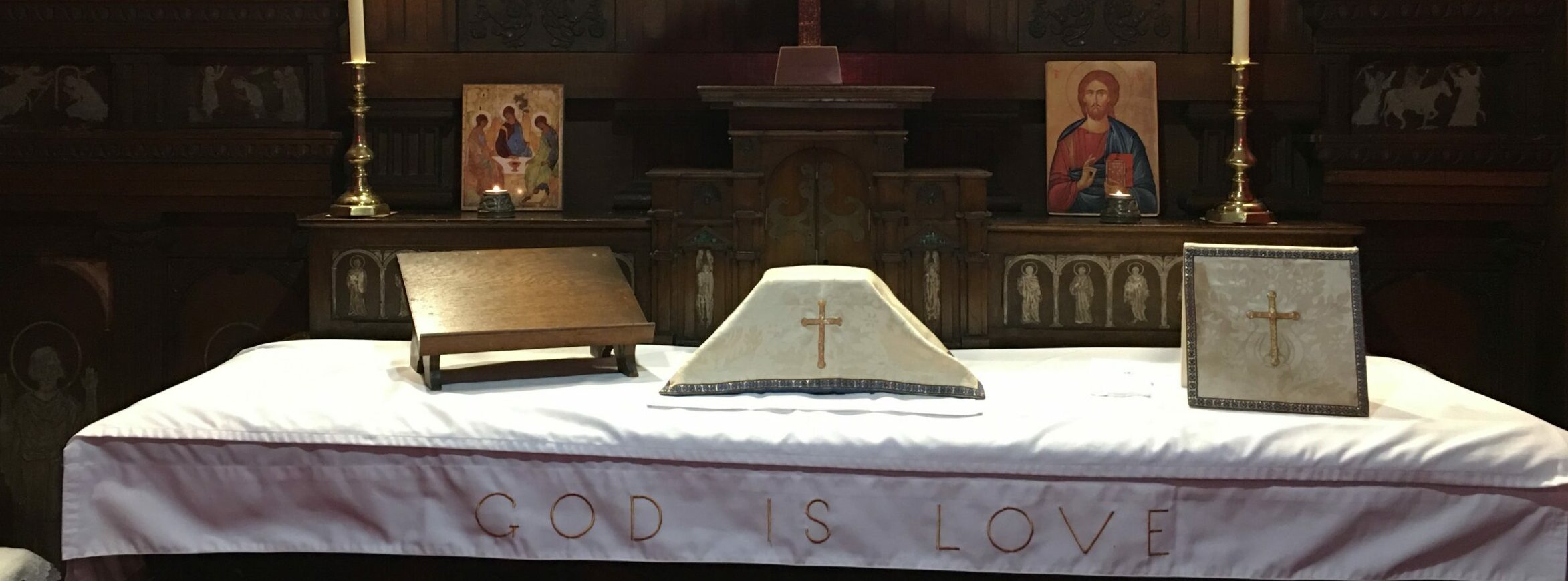Our Rector, Paul writes on his blog:

Lambing snow is the name given to an early spring snowfall that can catch some of the wee lambs out who are born at the start of the season. Farmers have to watch out for this and, given care and shelter, the lambs are usually able to survive. It coincides too with the images of daffodils emerging through a covering of late snow, a similar sign of hope and new life in a forbidding and even hostile environment.
Nevertheless there is something beautiful of this setting of fragile life against the rawness of nature, something that speaks to the heart of the human condition and the poignancy of it all. I write this on a Good Friday which is set in a global context of much uncertainty and even fear and desperation. The centuries old story that we are taken back to again and again by the turning of the season, of a God who died for a suffering and broken world, seems to have more resonance than ever. Like a lambing snow , the cold winds of religiosity, entrenched power and vested interests tried to snuff out the life of the Lamb of God. Today too, so many people and especially children are unable to live the lives they could live due to oppressive and dangerous conditions in which they live, circumstances which could be changed and reformed given political will and ethical commitment.
And this is where those events so long ago and far away resonate. The death and resurrection of Jesus Christ gives a motivation and hope that inspires people to change the world around them. If the story of Good Friday and Easter isn’t literally true, it isn’t valuable. C.S. Lewis wrote: ‘If you read history, you will find that the Christians who did the most for the present world were just those who thought most of the next.’ The impact of Christianity on the world is intrinsically linked to the living faith of those who established its institutions and values. Justin Brierley in a recent article wrote… if people hadn’t actually believed in the Christian promise of redemption and if they hadn’t been able to hope in the face of death, they wouldn’t have had the courage to change the world in Jesus’s name.
Whether Jesus Christ actually rose from the dead matters. As St Paul says in 1 Corinthians 15: ‘If Christ has not been raised, your faith is futile; you are still in your sins.’ And it should matter to us. As a Christian I believe things that are dead can come back to life. That’s the point of the story after all. This also applies to our individual lives and circumstances, especially when we are starting to hope again and the shoots of new life are re-appearing after a long season of winter and death. And it all seems uncertain and we are not sure if what we long for will emerge formed and strong enough to survive through to the happier days of summer and God’s blessing.
And finally hope for our churches too, as we try to walk in faith once more and open our hearts and doors to risk and new beginnings, not sure if it will be worth it or where it will all lead. As G.K. Chesterton wrote: ‘Christianity has died many times and risen again; for it had a God who knew the way out of the grave.’
You can read this and more of Paul’s posts on his blog at https://stillpointfaith.blogspot.com.


